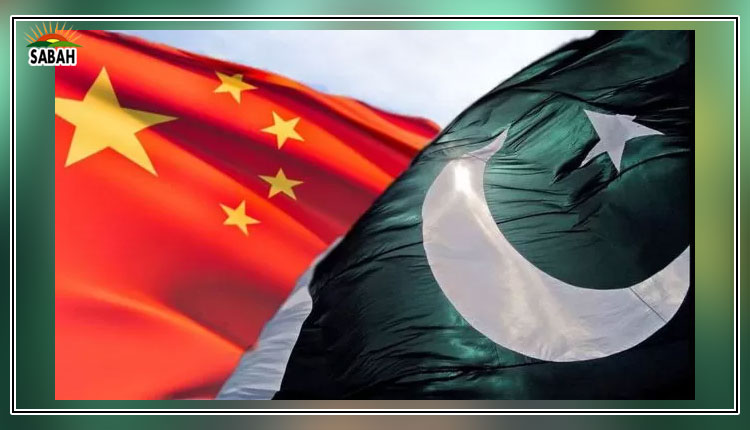Fraught relationship….S Qaisar Shareef
On February 1, a very large balloon was spotted over the US state of Montana; the balloon was determined to have originated in China. Why exactly China would resort to flying a balloon over US airspace remains somewhat of a mystery. The US allowed the balloon to fly across the country and then shot it down.
The wreckage has now been recovered by American authorities who have announced the balloon was designed to gather intelligence as it flew across. China has continued to assert it was a weather balloon that had strayed off its intended course.
This incident comes at a time when US-China relations are already extremely tense. The US feels Chinas growth and assertive posture in many parts of the world is a threat to American security and commercial interests. China on the other hand appears in no mood to apologize for its economic and technological progress.
This superpower rivalry is of a nature the kinds of which the world has not seen in living memory. We may be moving towards what could be a destructive second cold war. However, there are elements in this conflict that are truly unique. The US and China are the worlds largest and second largest economies respectively. At the height of the US-Soviet cold war, trade between the two countries was about $2 billion a year. Trade between the US and China stands at about $2 billion a day! This economic relationship has been to the benefit of both sides.
China has become the manufacturing hub of the world, lifting hundreds of millions of its population out of poverty. Western consumers, on the other hand, have benefited from a seemingly unending supply of low-priced goods.
So, what has started to upend this relationship? Successive American administrations have supported Chinas ascension to the World Trade Organization in hopes that an economically successful China will also lead to the opening of its political system. Instead, the rise of Xi Jinping has further consolidated all political power into a single hand.
While China has allowed Western investment in its economy, many sectors of China have remained closed to Western companies. There is also a strong feeling in the US that China has engaged in intellectual property theft creating conditions whereby U.S. companies investing in China are forced to reveal their technological and commercial secrets, thereby enabling Chinese competitors to emerge.
And then theres the matter of Taiwan. In 1979 when the US first recognized mainland China, it agreed to the One China policy, that is, Taiwan, Hong Kong and Macau are all part of one Chinese nation and will ultimately be united under one flag. China in return agreed to not take over Taiwan by force.
Since then, the people of Taiwan have increasingly drifted towards wanting to be an independent nation arguably, encouraged by the US. While giving up on Taiwan crosses a red line for China, President Biden has repeatedly asserted the US would protect Taiwan if it is attacked by China. It doesnt take much imagination to see where this could lead.
In order to contain the Chinese threat, as perceived by the US, it has imposed severe sanctions, the goal of which is to impede the technical advancement of China especially in fields such as artificial intelligence. This is forcing China to try to become self-sufficient in these technologies. The US has moved to convince Dutch and Japanese suppliers of advanced microchips-making equipment to cut off supplies to China.
There is a dire need to bring maturity and calm to the US-China arguments if the world is to avoid severe economic consequences, including splitting into Western and Chinese spheres. But like so much else in the US, the conflict with China has become highly politicized. Many in the Republican Party have even criticized the Biden Administration for its handling of the Chinese balloon matter. They ask why the government waited for a whole week before shooting down the balloon.
The waters between the US and China have been so poisoned that it is hard to see how the real underlying issues may be resolved. There had been a ray of hope after the Biden-Xi meeting on the sidelines of the recent G20 summit in Bali. This is all but gone. The appearance of the Chinese spy balloon did not help.
The writer is a freelance contributor based in Washington DC.
Website: www.sqshareef.com/blogs
Courtesy The News












